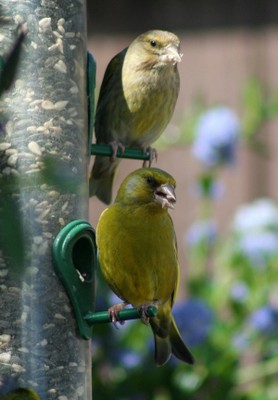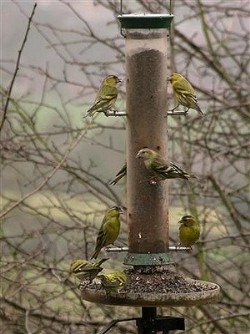Feeding Garden Birds: Risks and Advice
Reports
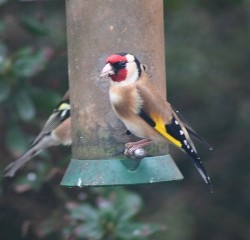
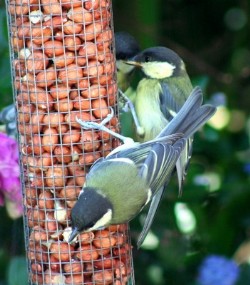
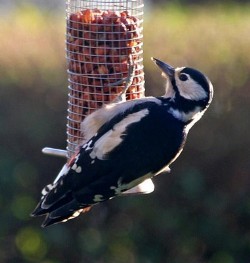
Gardens are areas that are well watched, and many people are very interested in the birds that are around their garden and encourage the birds by providing additional food and clean water. Wire mesh peanut feeders, seed feeders, and bird tables are all commonly used. The Royal Society for the Protection of Birds and the British Trust for Ornithology both recommend that wild birds are fed all year round to enhance their success rates during the breeding season. However there are concerns when a large number of birds are attracted into an area to feed. One is the increased danger of the spread of disease among birds.
Research carried out by the British Trust for Ornithology and the Zoological Society of London has recently been published. This review of 25 years' worth of data identified emerging threats to garden birds. Finches, doves and pigeons are vulnerable to a parasite infection, trichomonas. Meanwhile, a form of bird pox is becoming more common, causing warty-like lumps on the bodies of great tits and other birds. Other disease threats, such as salmonella, appear to be declining. The research found that patterns of infection in wild birds are changing. This may be influenced by wild birds congregating at bird feeders and coming into contact with species they don't encounter naturally in the wild.
"Our study shows how three of the most common diseases that affect British garden birds have changed both dramatically and unpredictably over the past decade, both in terms of the species they affect and their patterns of occurrence," said Dr Becki Lawson from ZSL's Institute of Zoology.
Co-researcher Kate Risely from the BTO said anyone who feeds wild birds should be aware of their responsibilities for preventing disease. "Be very vigilant - enjoy feeding the birds but educate yourself about what the risks are and what to do if you see signs of disease." It was important to continue to feed wild birds, especially in winter, when they need lots of food to survive, she said.
The advice from the research is, if birds look sick, food should be withdrawn temporarily, for at least a month. Common signs that a wild bird is ill include unusually fluffed-up plumage and lethargy. Diseases can be spread through droppings or regurgitated food around bird feeders. People who notice sick birds should take practical steps to minimise risks: report their observations to the Garden Wildlife Health Project https://www.gardenwildlifehealth.org/ ; seek advice from a vet; withdraw food for at least a month to let birds disperse over a wider area; feed birds in moderation, clean bird feeders regularly and rotate feeding sites.
The Garden Wildlife Health Project website has a range of free fact sheets on diseases of birds and other animals.
